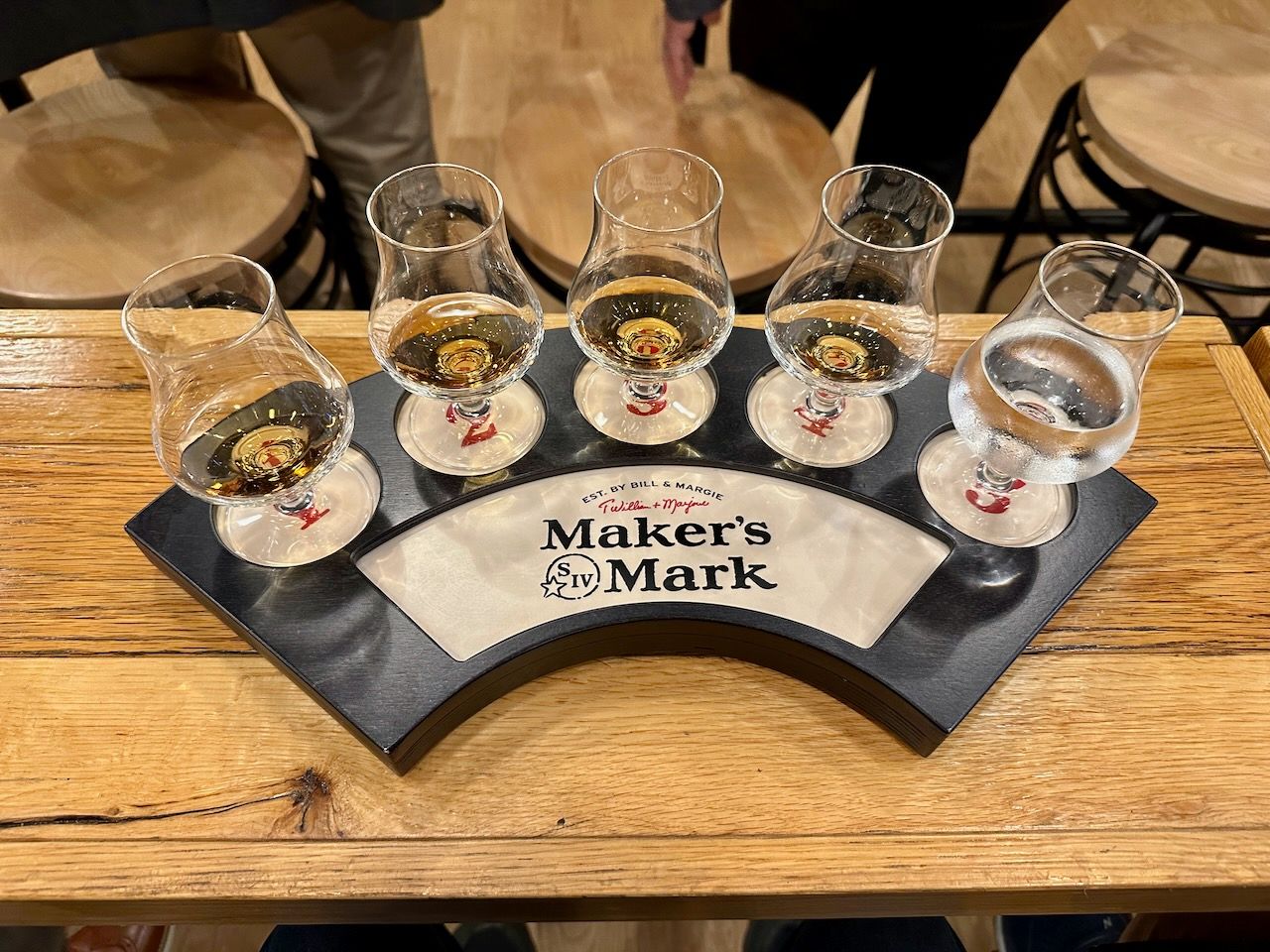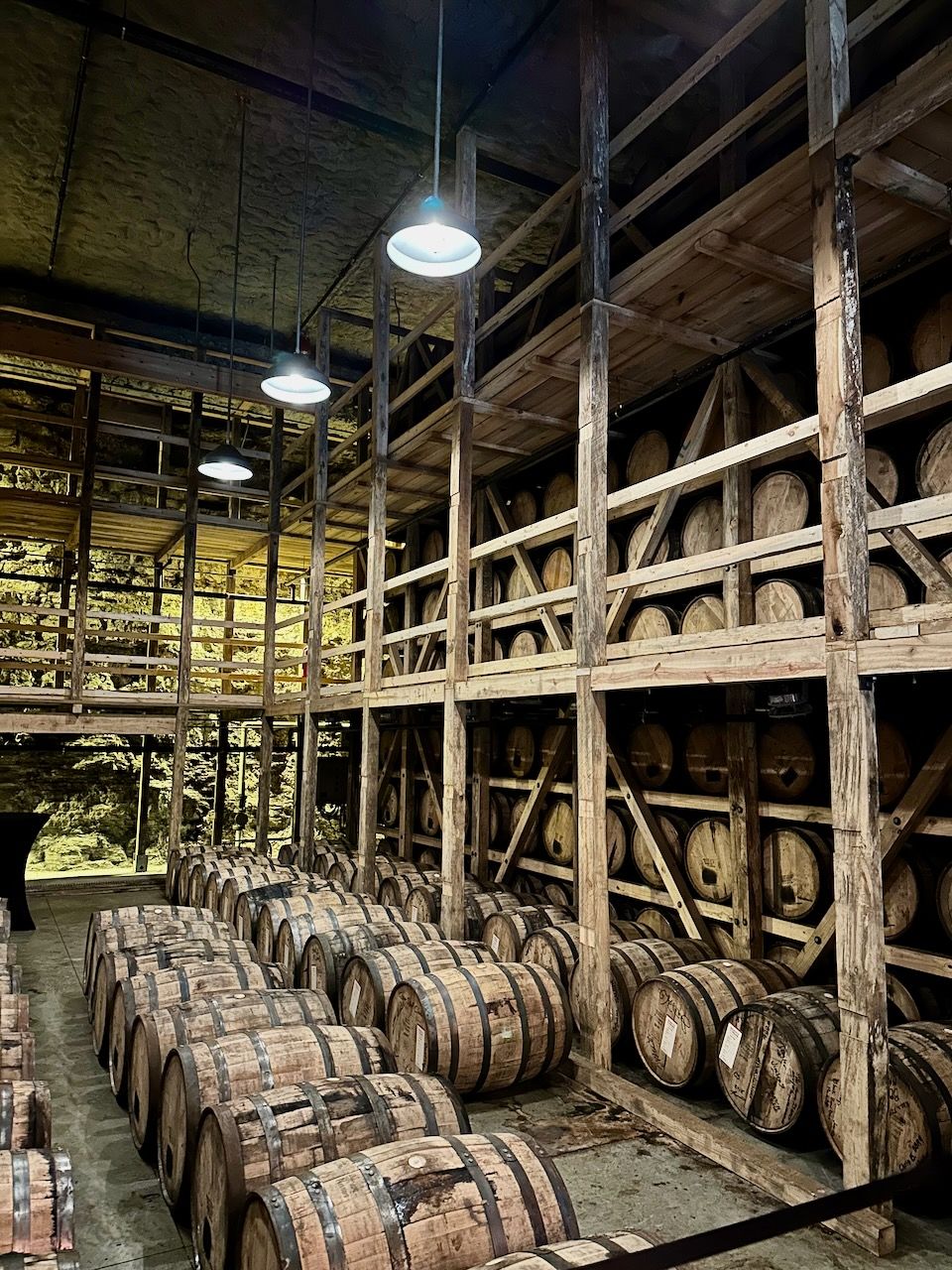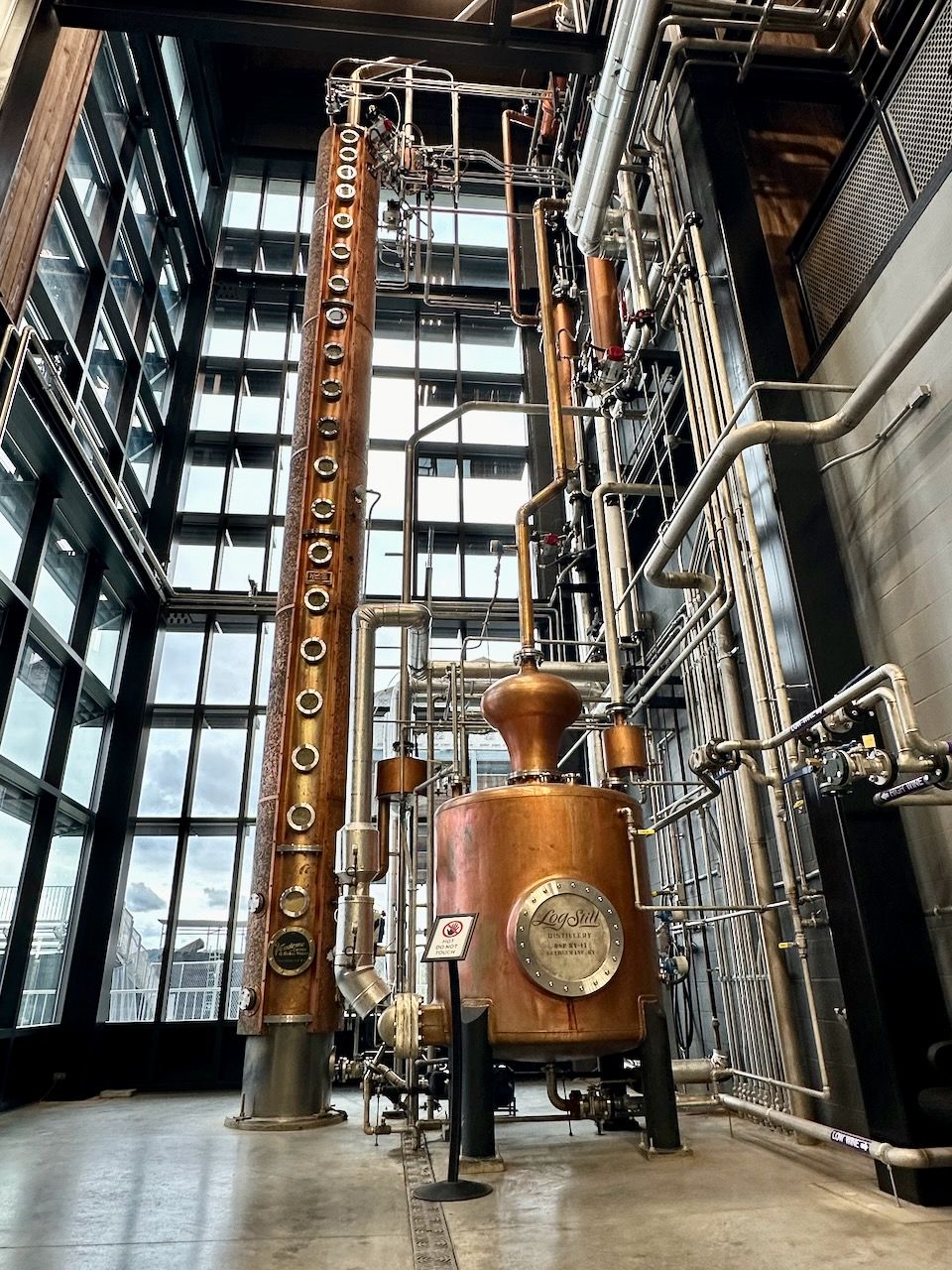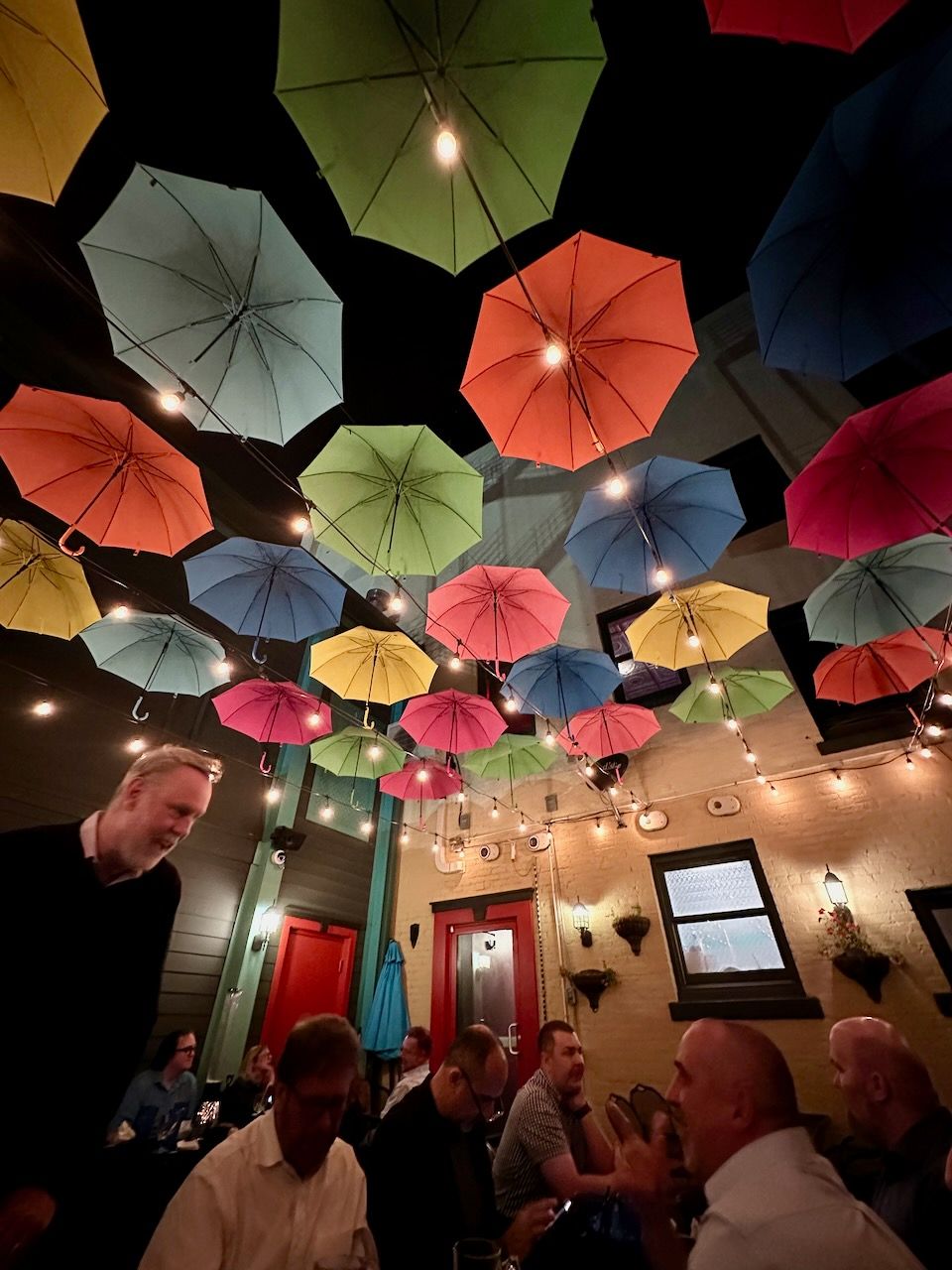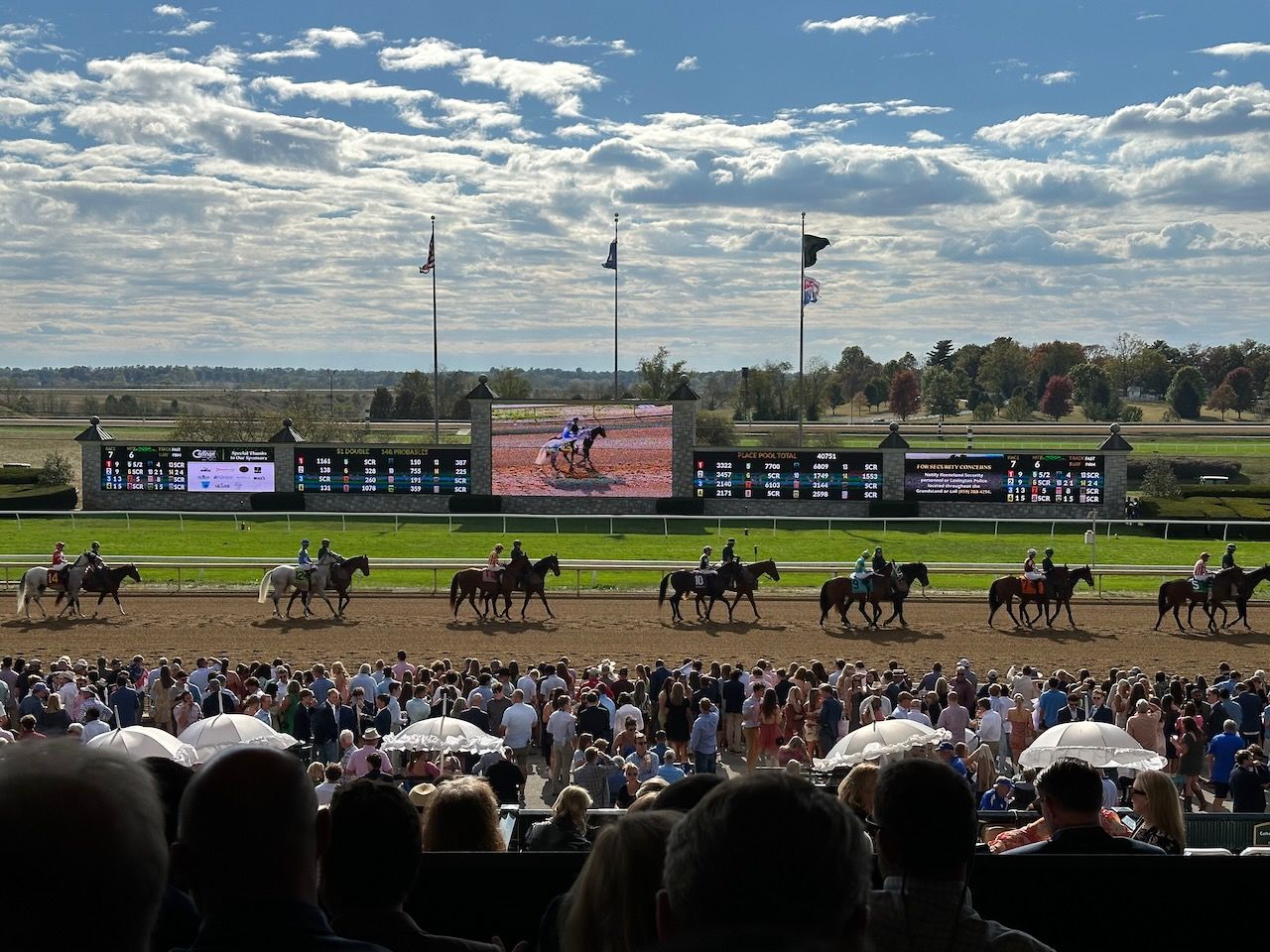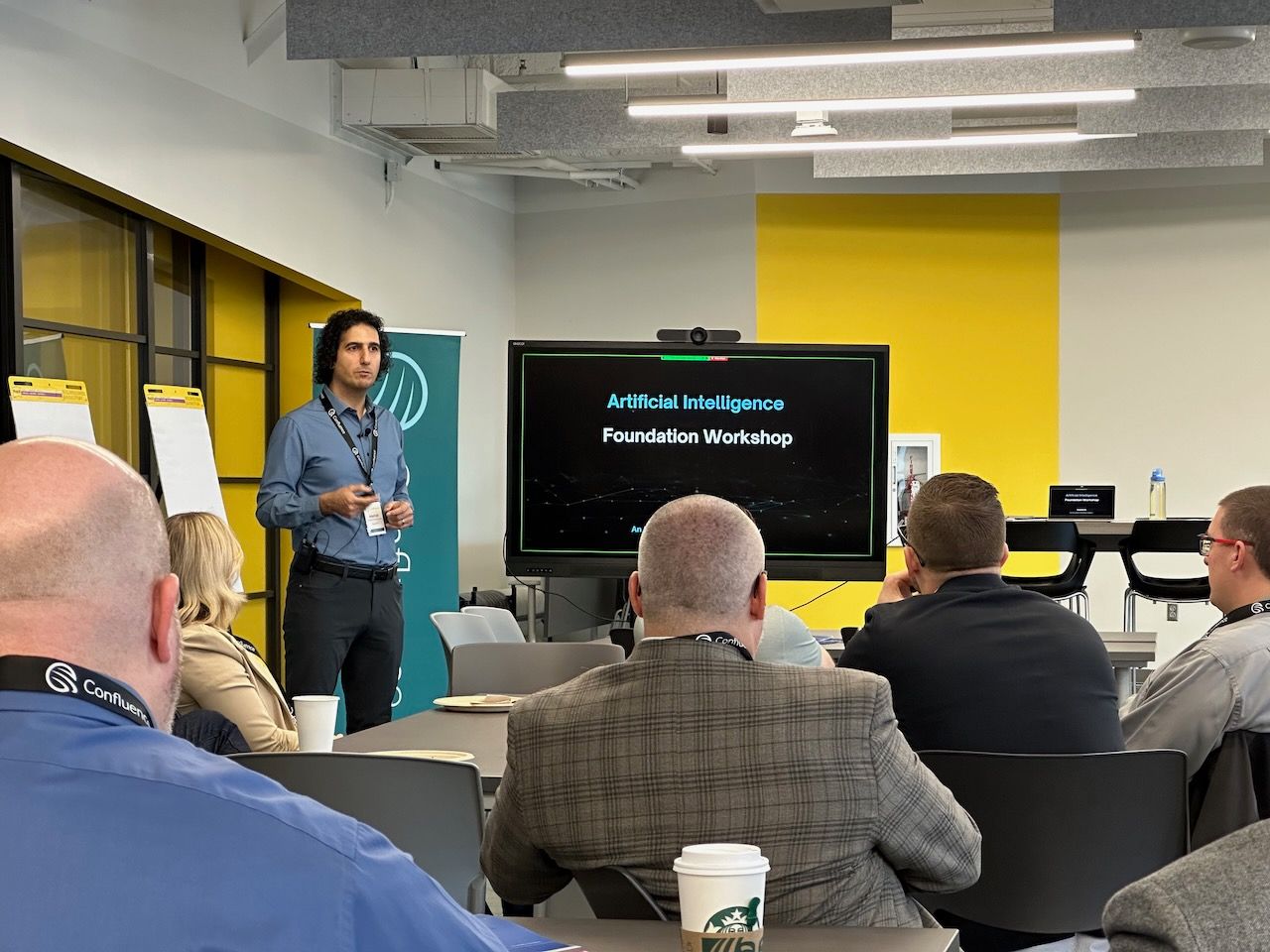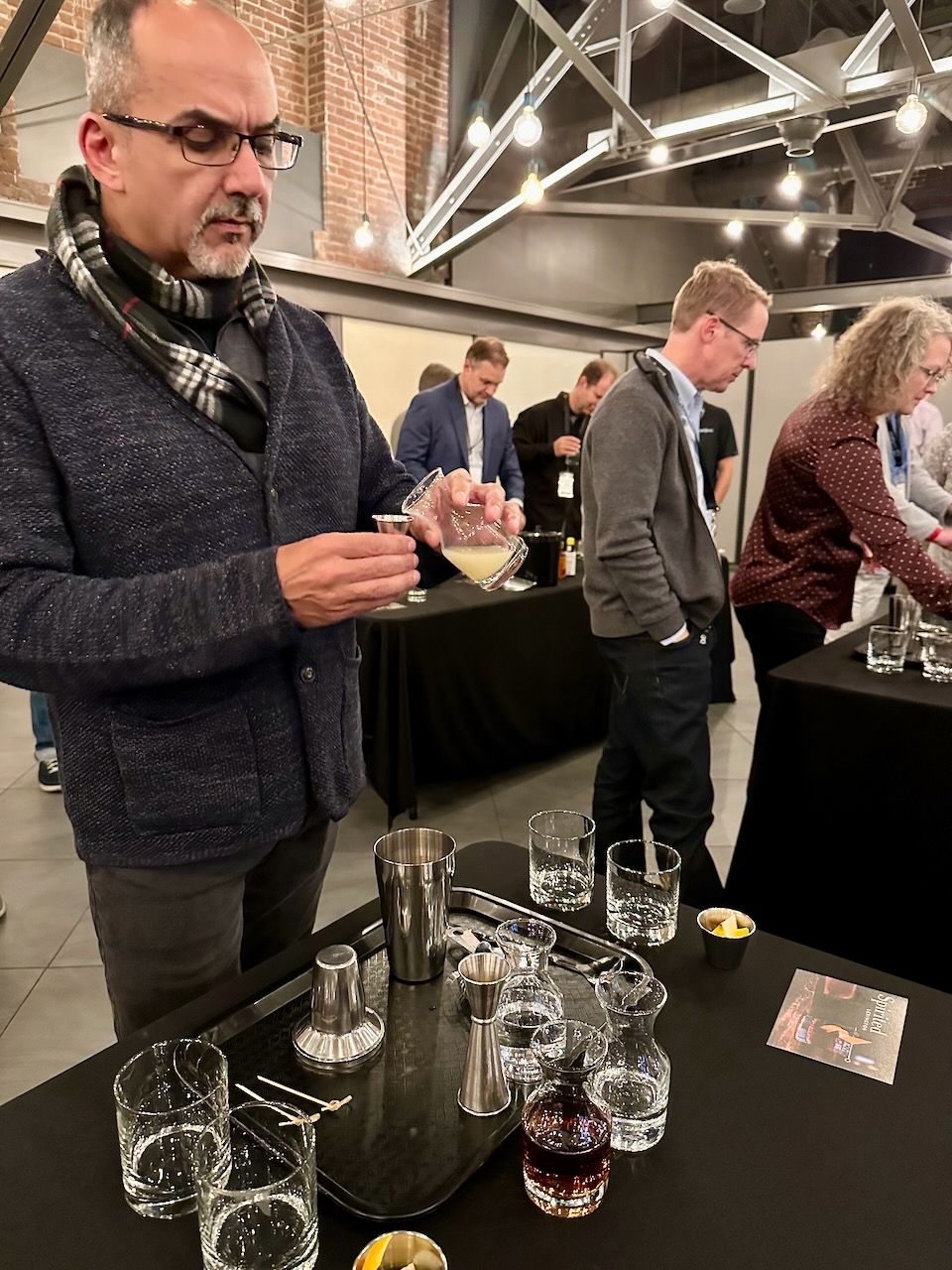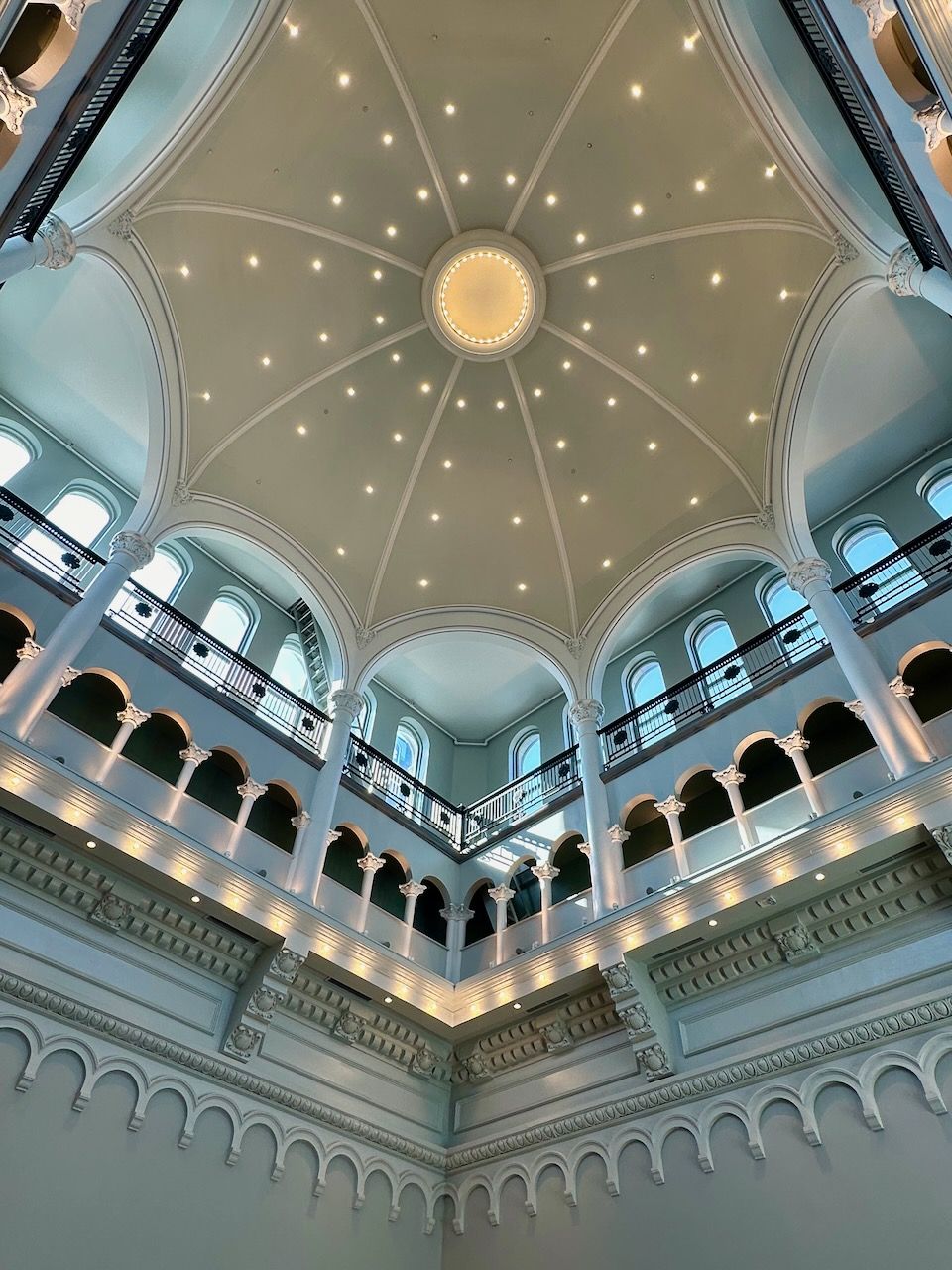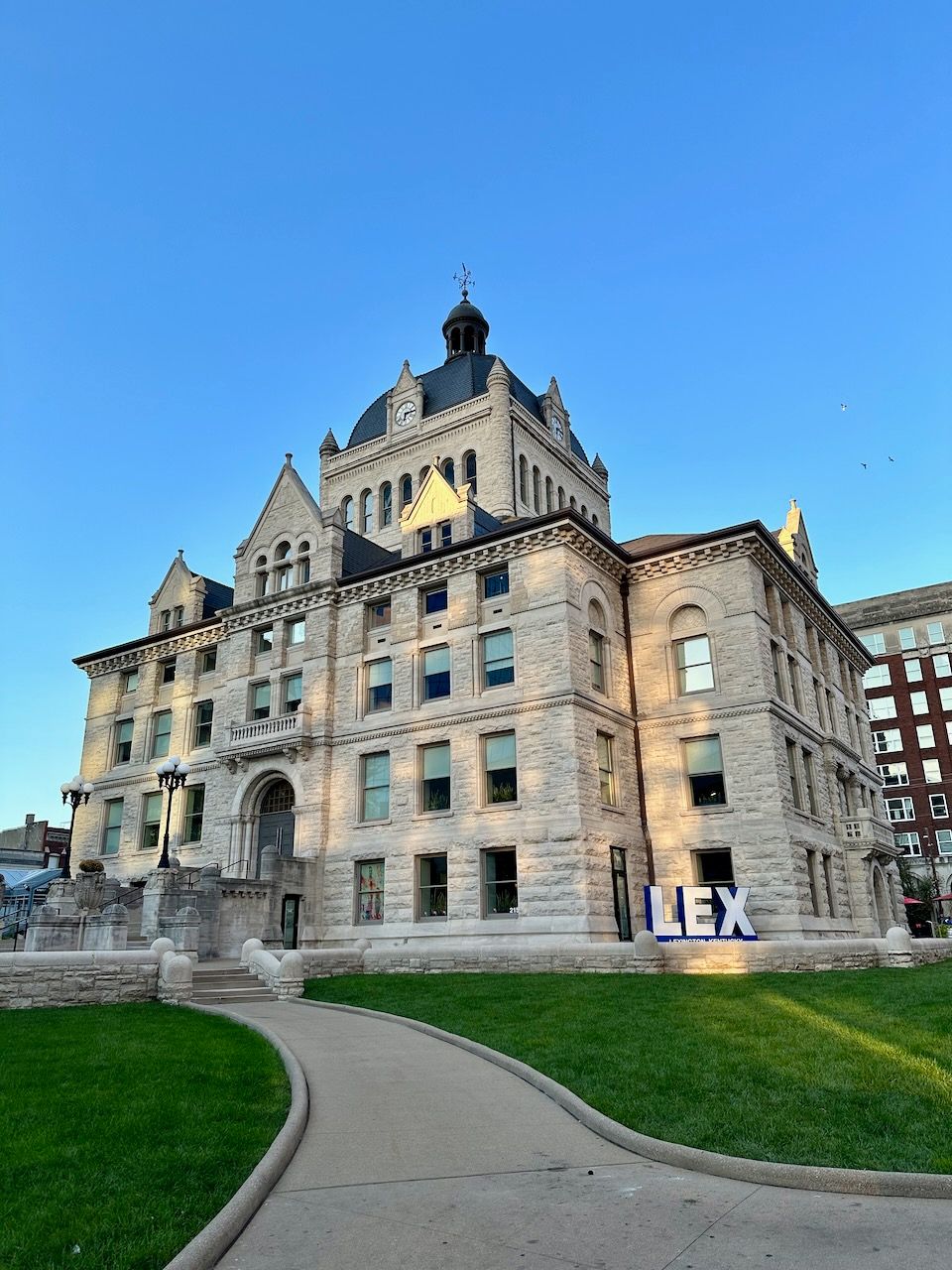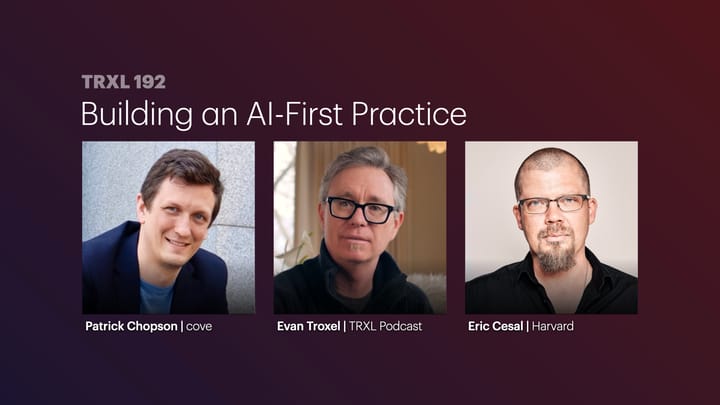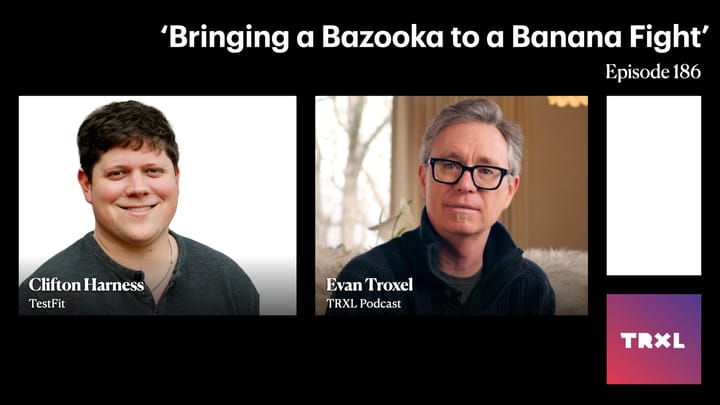Thoughts and Observations on This Year's Confluence Event
Remember blog posts? No? I do. Here’s one for old-time’s sake.
Confluence—the event, not the newly announced podcast that you should subscribe to on YouTube (wink wink, nudge nudge)—has been going on for 5 years now, and I’ve had the opportunity to attend 3 of them in person and once online during lockdown. Like anything worthwhile, it just keeps getting better over time. Iteration is the key, and because this conference is put on by AEC industry tech people, they understand the value of a well-designed feedback loop when it comes to improvement over time.
Randall Stevens of AVAIL and Corey Rubadue of ArchVision handle the programming and hosting, and there are countless others who help make it all happen.
What really sets this “conference” apart is that it’s in Kentucky, invite-only, and limited to about 50 people (including the speakers). I put “conference” in quotes because most people probably think of something much bigger when reading the word. This is more of an intimate hangout with good friends, which is, of course, by design.
But it’s the intentional mix of people and schedule that makes it so effective. Randall has said the goal is to get people from the service providers and the practitioners in the same room to talk shop and build relationships, not only in the work and business sense but also in the extracurricular activities they plan for the group, which take up an equal amount of time. More on that later.
Location
AEC technology conferences aren’t typically in Kentucky, you might be thinking. True, however, Lexington is the home of AVAIL, and there’s a lot to experience in the area. It’s a great excuse to get to know somewhere new. Plus, it’s a fantastic location to explore parts of the famous Kentucky Bourbon Trail, it’s the “horse capital of the world”, and home of the Keeneland thoroughbred race track just to name a few worthy examples.
In addition to shop-talk, we also had the chance to experience many attractions of what Kentucky has to offer during what could be considered the best time to visit—the Fall season. The weather is fantastic this time of year, and the trees are beginning to turn as we get midway into October.
Event theme and speakers
There’s a theme for each Confluence event, and this year the overarching topic has been AI and ML. You’re thinking: of course it was! But I have to say, the presenters truly delivered. Randall and Corey have built an insanely deep network over the past few decades, and their connections came in clutch last week.
Check out this all-star lineup of speakers: Jeff Mottle from NVIDIA, Jorge de la Cova from Cooper Carry, Monica Nelson from Chaos Group, Sam Zolfagharian from YegaTech, Dave Peterson from Flad Architects, Randall Stevens and Tucker Overton from AVAIL, Adam Chernick from Amazon Web Services (AWS), Matthew Anderle from AECOM, Marty Rozmanith from Blue Ocean/Skema, Alice Leung from Brick & Mortar Ventures, and an AI keynote and workshop led by Mehdi Nourbakhsh, Ph.D. from YegaTech.
What did they talk about? Projects, platforms, research, lessons learned, risk and reward, trajectories, potential pitfalls, data, experiences, knowledge, and wisdom. What’s more important than the information shared were the lived experiences they shared and the shift in attitude for the attendees afterward.
For example, at the beginning of Mehdi’s workshop, he took a poll of the audience to gauge the pulse of everyone’s feelings about the topic of AI, and then he did so again at the end of it. Based on what we were seeing in the live poll results, my interpretation of the group’s feelings at the beginning of the workshop was that there was more weight toward general confusion and being a bit fearful of AI. By the end, there was much more optimism and excitement about the possibilities of what AI has to offer us by augmenting our abilities. By going through the experience together, listening, participating, and contributing to the conversation with other like-purposed professionals in the AEC industry spanning from education to research to practice to technology provider, common ground was established. I expect to see a lot more intention in everyone’s foray into AI and ML after the workshop where most seemed content to watch and see what happens from the sidelines beforehand.
How to do a conference
So I’ve mentioned the balance of work and play and people and places that this event prioritizes. Contrast this with a typical architecture or technology conference in Seattle or LA or NYC. 50 people versus 700 to 1,000. Big city lights versus a scale you can wrap your head around. Urban meccas versus horse farms spread out over sprawling limestone hills. Full days of learning tracks stacked 3x deep and still not enough seats to get into the classes attendees want versus one track for all.
Confluence looks different, sounds different, and feels different. This event achieves the right balance. Randall says it best: ride time on the bus going from place to place is where the magic happens. The distance and time it takes to get from one bourbon trail distillery to another is arguably the most valuable because it’s when one can actually get to know another. Relationships are made at Confluence.
The industry is built by people, for people. And I think Randall and Corey know this better than most conference organizers. They make the entire event personal, which is a very different experience from other events in the same category. By tying in all that the area has to offer and inviting people in with a small chance of having been there before, it’s a great recipe for forging new experiences and friends along the way.
And while the limitation of the event being invite-only and 50 people max may not seem to make sense from the outside, it really does once you experience it. Randall said that it’s really limited by the capacity of the bus that moves everyone from venue to venue, but it’s also the quality of the conversations that happen in smaller groups. More people won’t necessarily make it better, and I’m sure the organizing team will continue to navigate the issue of size and scope. The last thing I’ll say in advocacy of staying small is that being together with everyone each day really does allow relationships to form, which doesn’t seem to happen at larger conferences. There is a difference between connection and relationship.
Final thoughts
I’ve gone on long enough about this Confluence event, but I want to make sure I write about where this is all heading. The idea behind the launch of the Confluence podcast is to extend the reach of these invite-only events; to extend the conversation around the topics and expose the speakers who present; to educate and inform the industry on a larger scale.
I’m sure Randall and I, and maybe a guest or two, will record an episode of the Confluence podcast where we talk more about the event in the near future. Subscribe to my email newsletter to get notified when we do.
